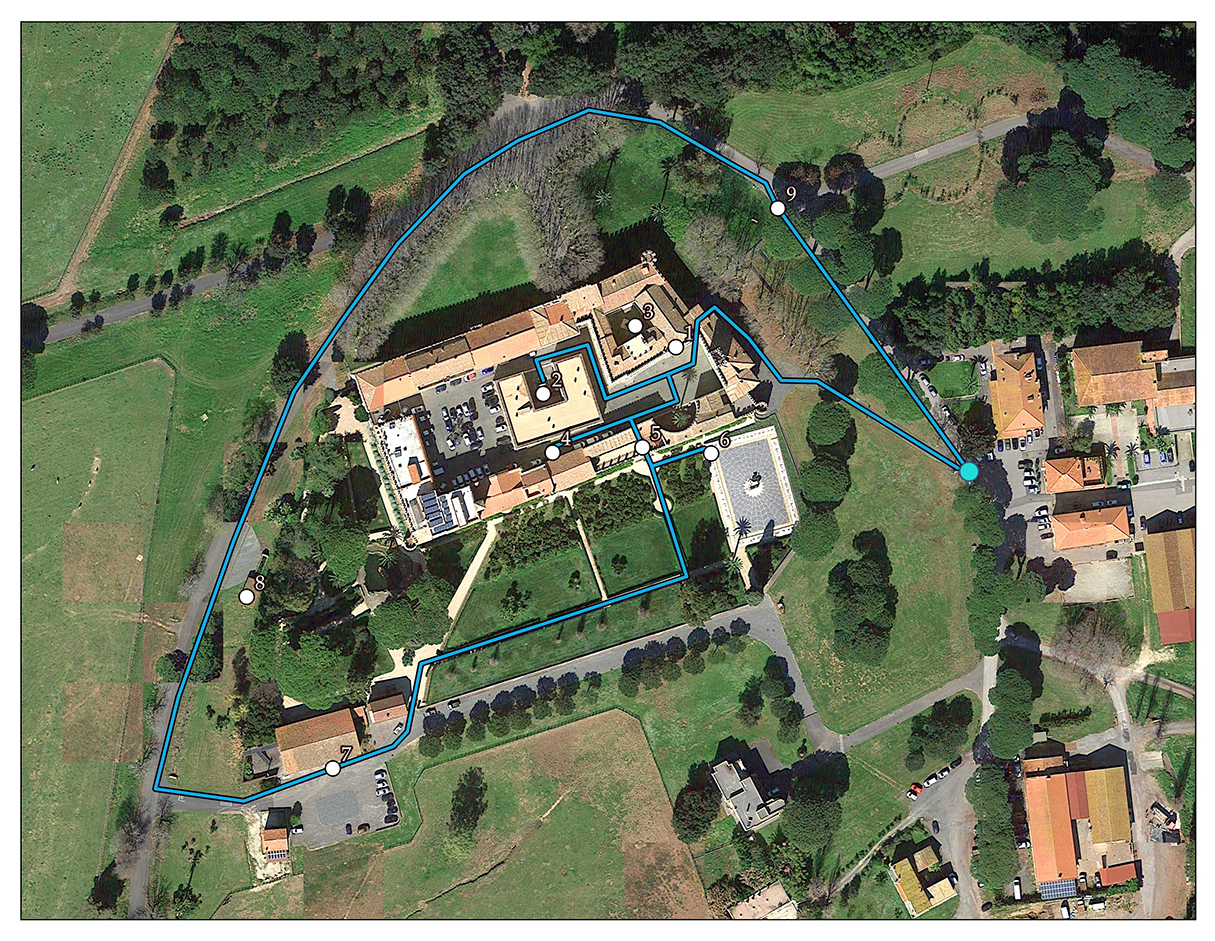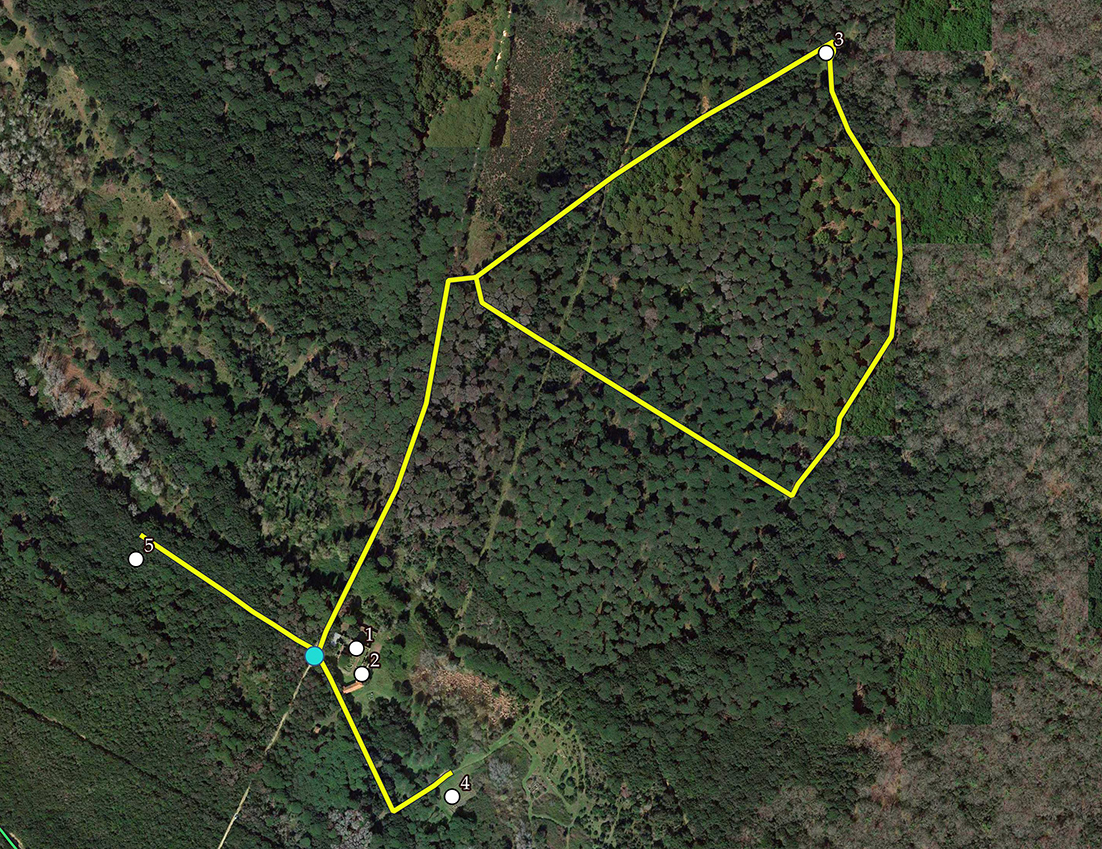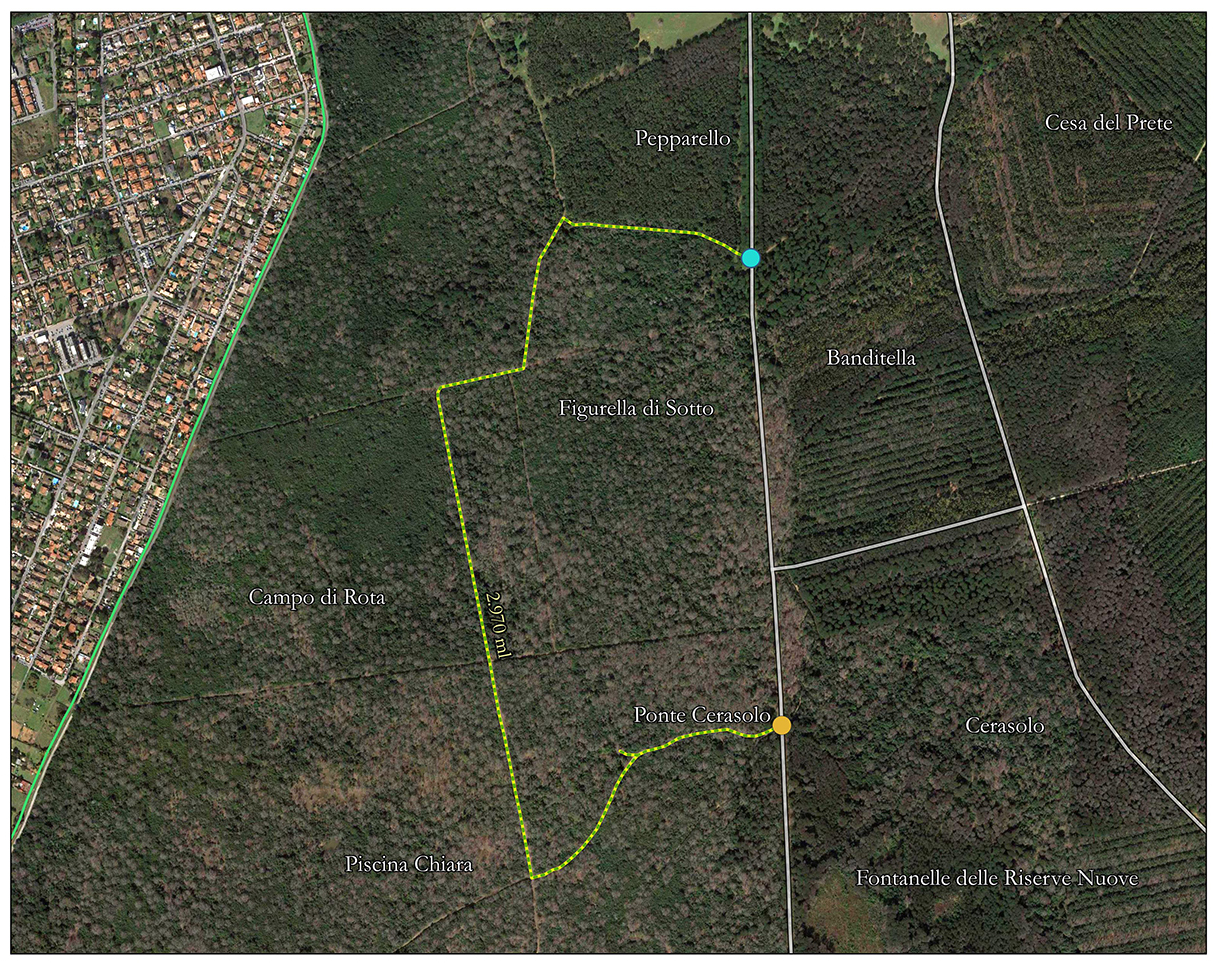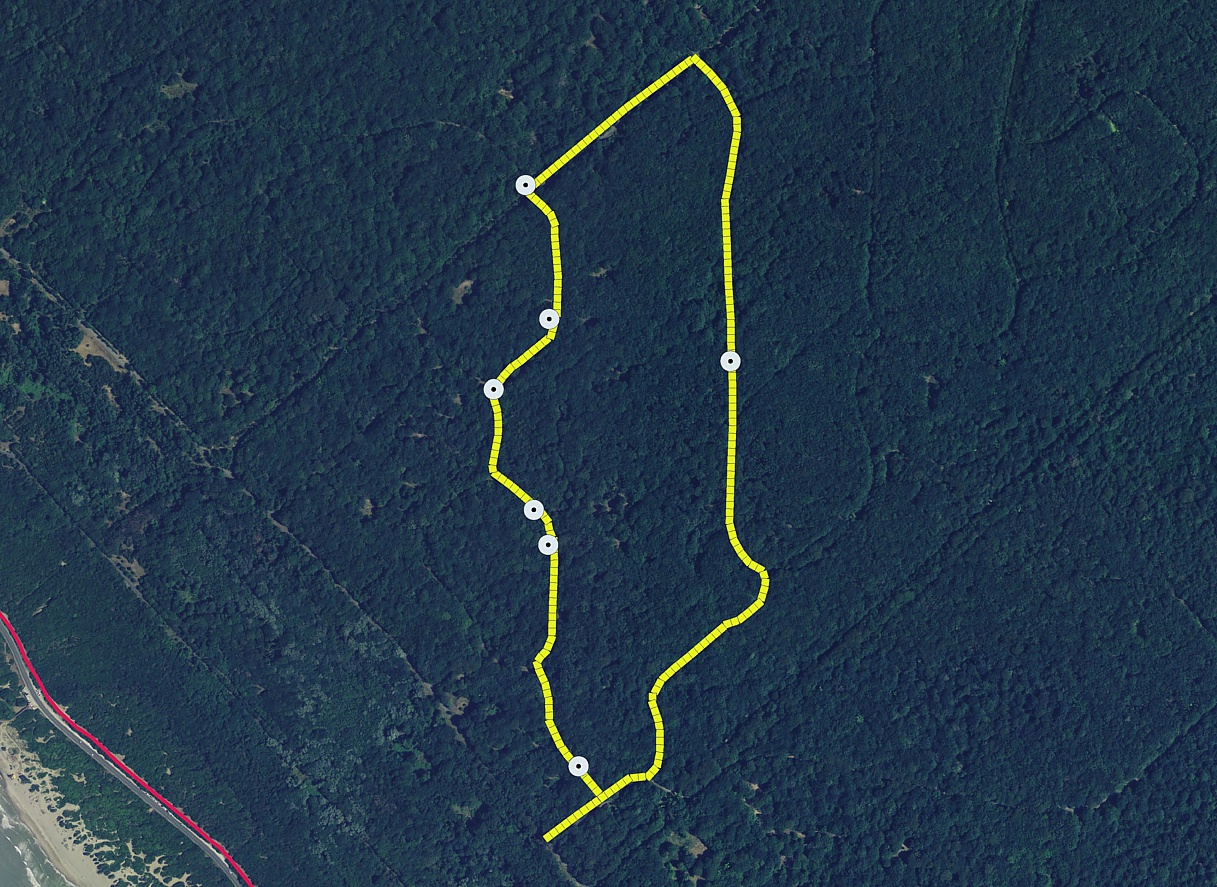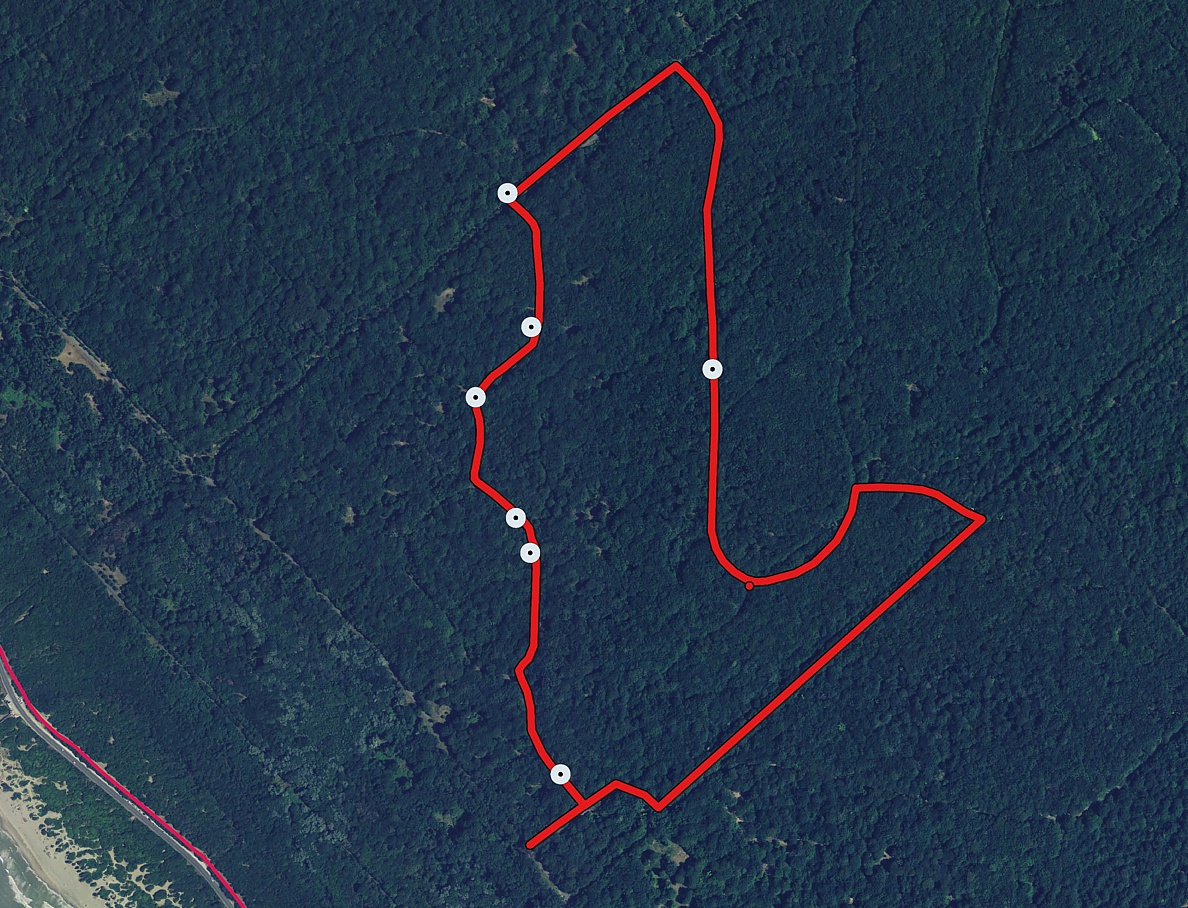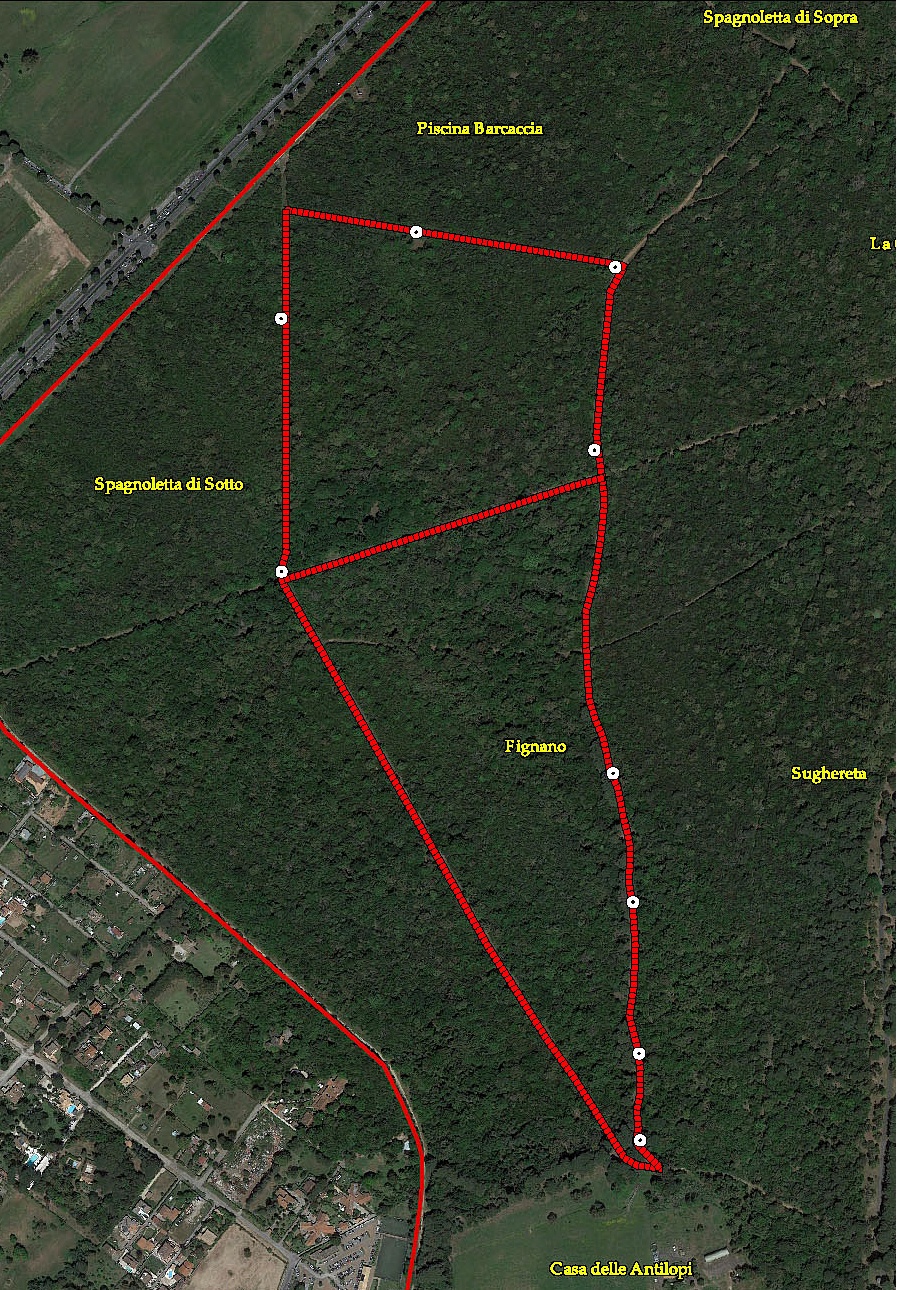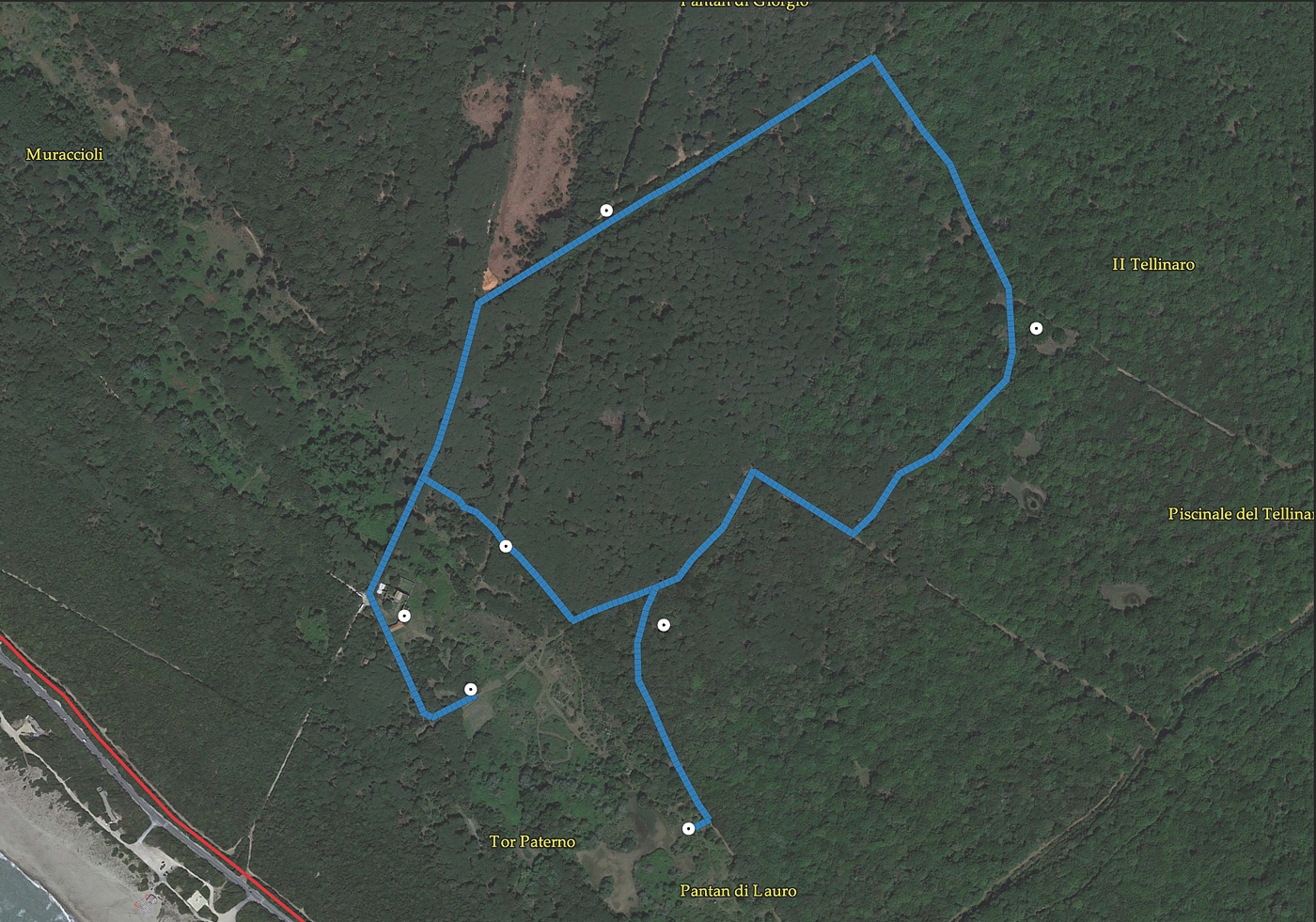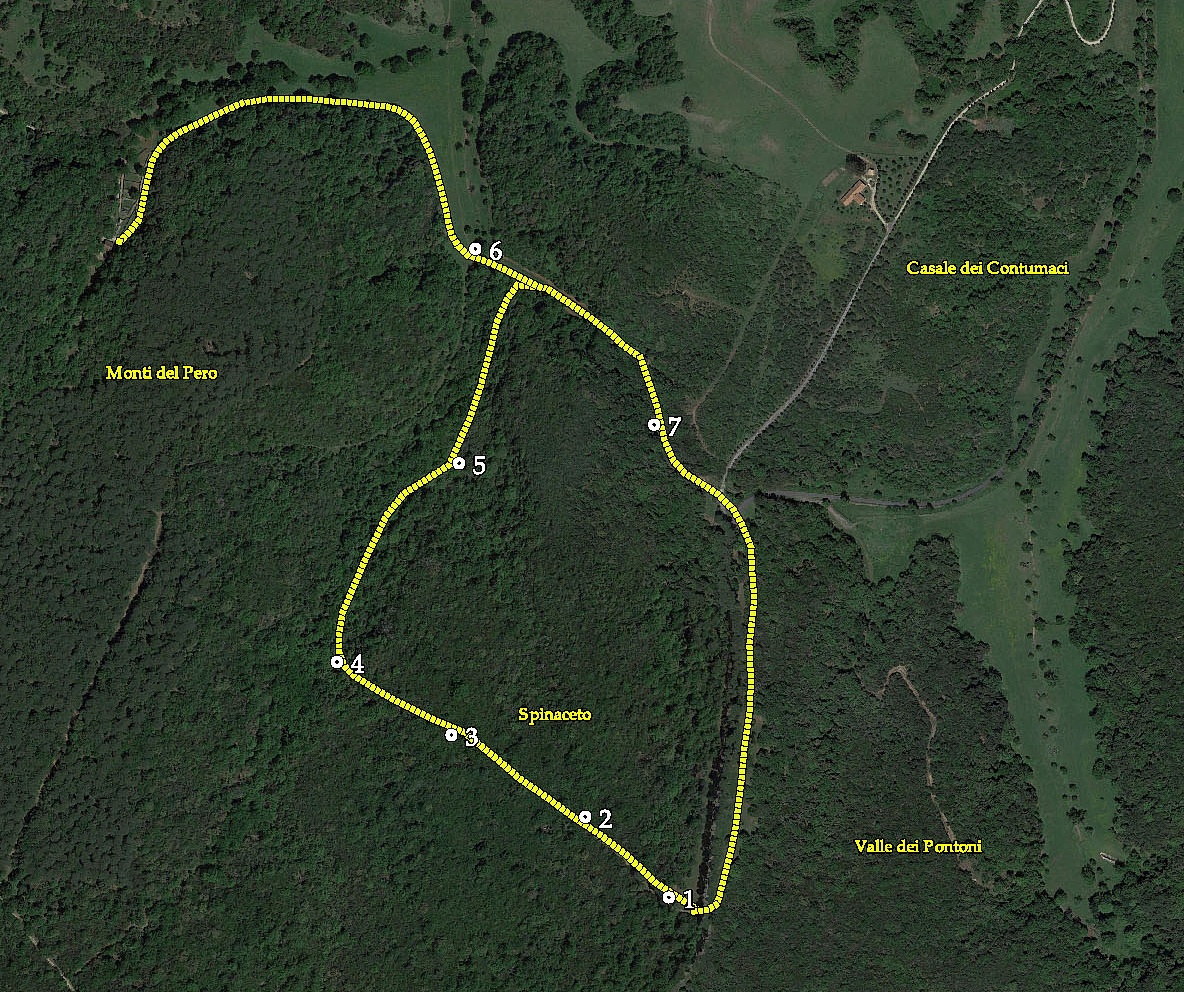Contenuto testuale
Tour Itineraries
The Castelporziano Presidential Estate is open to the public and offers nature, archaeological, historical and artistic routes.
At every change of season a specific nature route is chosen among those available through a rotation system aimed at limiting the anthropic impact on the ecosystem.
The total duration of every tour includes transportation times and the viewing of a short film.
The visit ends at the completion of the itinerary, when visitors are ushered out with a dedicated shuttle service before or after lunch, as scheduled.
Lunch can either be consumed at the visitors’ expense at the Estate’s bar-restaurant or as a packed lunch at the dedicated picnic area.
In both cases, visitors are requested to follow the staff’s indications.
In any one of the tours, visitors will be able to see works, furnishings and installations that are part of the Contemporary Quirinale initiative.
Historical-Artistic Tour
Available in the spring and autumn periods.
The visit includes: the Archaeological Museum, the Castle, the historic residence and the Hall of Trophies, the Church of Saint Filippo Neri, the Coffee House and the Horti della Regina, the Queen’s historical gardens, the ancient water trough and the carriage pavilion.
- OVERALL DURATION: 3.5 hours
- LENGTH: 930 linear meters
- Picture Gallery
Archaeological Tour
Available in the spring and autumn period.
After visiting the Archaeological Museum, the visitors are taken to Tor Paterno on a shuttle bus to visit the imperial villa and the Roman aqueduct. The tour drives through the Estate’s numerous places of natural interest.
- OVERALL DURATION: 4.5 hours
- LENGTH: 3,572 linear meters
- Picture Gallery
Nature Tours
Available in the spring and autumn periods.
There are 5 Nature Tours: Capocotta, Malafede, Tor Paterno, Malpasso and Campo di Rota. A different Tour is proposed according to the season following a rotation principle aimed at limiting the anthropic impact.
Every tour enables visitors to get to know the different ecosystems that typify the Estate.
All the Nature Routes include a visit to the bird-ringing station and to Castelporziano’s History and Nature Museum.
The overall duration of the single routes and the average duration of the various trails is indicated on the corresponding information sheet.
IN CONSIDERATION OF THE TERRITORY’S PARTICULAR CONDITIONS, VISITORS ARE ADVISED TO USE TREKKING OR HIKING SHOES
- Campo di Rota Route
- Capocotta - Riserva di Lauro Route
- Capocotta - Via Antica Route
- Malafede Route
- Tor Paterno Route
- Malpasso Route
Campo di Rota Route
Over time, the action that Man has exercised in variable ways and degrees of intensity has shaped the forest into its current configuration which consists of a combination of native oak species mixed with deciduous oaks such as Turkey Oak, English oaks and Hungarian oaks. The undergrowth is made up of maquis shrubland in the dryer microclimates and of Oriental hornbeams in the moister areas. Along the trail, it is possible to visit a natural cork oak forest that was once tapped for the extraction of cork, bearing witness to an age-old tradition that characterized vast areas of the Mediterranean Basin. Precisely for its naturalistic and environmental value, the area has been subjected to a series of ecological research studies and surveys ever since the 1990s, within the framework of the Environmental Monitoring Programme of the Castelporziano Estate. At the beginning and at the end of the trail stand two historical water troughs that were used to water horses and grazing cattle during the reign of the House of Savoy.
- OVERALL DURATION: 5 hours
- AVERAGE DURATION of the hike: 2.5 hours
- LENGTH: 2,970 linear meters
Capocotta - Riserva di Lauro Route
It unfolds through a mixed old-growth oak (Turkey oak, Hungarian oak) and hornbeam grove, once destined for the production of timber. The whole area has been subjected to an important environmental rehabilitation and restoration intervention. Before it was purchased by the Office of the President of the Republic it had undergone deep speculation-driven transformations. Of particular interest is the current vigorous recovery of the autochthonous vegetation. Some of the older trees shelter important invertebrate species which live in decaying wood, including species of Community interest.
- OVERALL DURATION: 5.5 hours
- AVERAGE DURATION of the hike: 1.5 hours
- LENGTH: 2,660 linear meters
Capocotta - Via Antica Route
The route follows one of the rare roads that once led to Capocotta – the centre of myths and legends and of the age-old poetic traditions of ancient Ausonia – and runs through mixed oak groves mainly consisting of Turkey oak and Hungarian oak. Some of the older trees shelter important invertebrate species which live in decaying wood.
- OVERALL DURATION: 6 hours
- AVERAGE DURATION of the hike: 2.5 hours
- LENGTH: 3,530 linear meters
- Picture Gallery
Malafede Route
The route crosses a forest of tall trees prevalently consisting of oaks (Turkey oak and Hungarian oak, Quercus crenata, Quercus virgiliana, holm oak), and majestic cork oaks that bear witness to their age-old cultivation. The forests are often skirted with evergreen shrubs (Phillyrea, mastic, myrtle, heather, and cistus). The whole environment represents an excellent shelter for wild boar and fallow deer. Of particular interest is also the invertebrate fauna and the herbaceous flora typical of arid sandy subsoils, interspersed with wetlands and pools of water, which are inhabited by numerous species of reptiles, amphibians, crustaceans and insects. In consideration of the importance of the flora and fauna, a sector of the forest has been placed under complete protection.
Along the trail, it is possible to see the free-range livestock grazing traditions of Maremma cattle and horses.
- OVERALL DURATION: 6 hours
- AVERAGE DURATION of the hike: 2.5 hours
- LENGTH: 3,330 linear meters
Tor Paterno Route
The route, in addition to the archaeological landmarks in the Tor Paterno area, encloses within a relatively small space the natural environment typical of Castelporziano. It unfolds through holm oak groves, Mediterranean maquis and different types of deciduous forests. It skirts the Estate’s largest wetland, which is surrounded by willows and poplars and where it is possible to observe different species of marsh birds and waterfowl, reptiles, amphibians.
- OVERALL DURATION: 5 hours and 45 minutes
- AVERAGE DURATION of the hike: 2.5 hours
- LENGTH: 3,040 linear meters
Malpasso Route
It unfolds through a very sinuous landscape. The upland plains covered by holm oak groves alternate with valleys and gorges prevalently covered by mesophile vegetation (Turkey oak, hornbeam), where it is possible to find wild boar, hare and roe deer. The adjacent agricultural area is also very interesting as it is rich in water ponds in which domestic and wild fowl live side by side harmoniously.
- OVERALL DURATION: 5.5 hours
- AVERAGE DURATION of the hike: 2.5 hours
- LENGTH: 2,614 linear meters
- Picture Gallery
